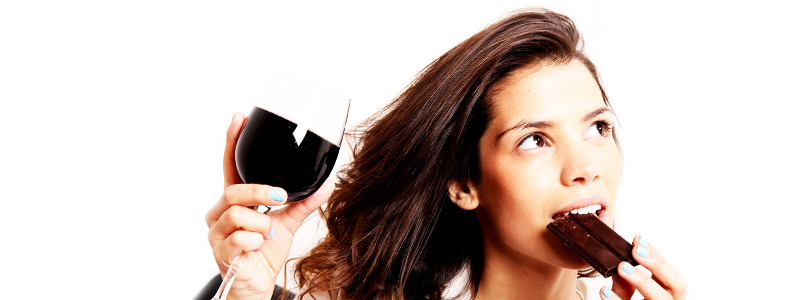
We’ve come across a lot of interesting studies which seek to show the health benefits of wine, but nothing compares to today’s news:
Drinking Wine + Eating Chocolate = Possibly Shielding Your Heart From The Effects Of Smog
For that we have to raise a glass to lead researcher Jia Zhong, a doctoral student at the Harvard School of Public Health, who is responsible for this glorious study. Here are the details of Zhong’s research:
A diet rich in chocolate, wine, fruits and vegetables may help protect people from heart disease caused by air pollution, new research suggests.
The researchers found that elderly men were less likely to experience changes in heart function during heavy smog days if they ate foods loaded with flavonoids, an antioxidant found in plants.
…“We as individuals have no regular means to protect ourselves from air pollution,” said Zhong’s mentor, Dr. Andrea Baccarelli, an associate professor of environmental epigenetics at the Harvard School of Public Health. “Here we have a potential avenue where we can protect ourselves.”
Smoggy air can reduce the heart’s ability to vary its rhythm. Reduced heart rate variability has been linked to death from heart attacks and heart disease among older people, Zhong said.
“We were looking if there were any factors that could make the harm less significant,” Zhong said.
It’s important to note this research is in its early stages, but we’re hoping that we see progress, especially for our friends in Los Angeles:
The researchers warned that this shouldn’t be taken as an indication to gorge on chocolate bars or guzzle wine. “If you eat too many calories, that’s not going to be good for your heart,” Baccarelli said.
Dr. Russell Luepker, a professor of epidemiology and community health at the University of Minnesota School of Public Health, agreed that these results should not lead anyone to drastically change their diet.
“There are a whole bunch of links here that are speculative, and a study that talks about associations can’t fill in these speculative links,” Luepker said. “This is only a first step. We need a lot more before we start telling people to do different things.”
Read more at U.S. News & World Report Health.
Header image via Shutterstock.com
